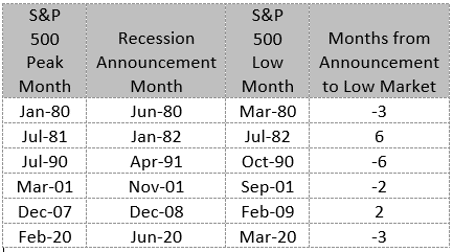Recessions and your financial plan
The threat of a recession continues to be one of the most pressing concerns for investors. Inflation has proved hard to restrain, and the Federal Reserve continues to raise interest rates.
Disagreement on recession likelihood
Whether the U.S. will fall into a recession is still uncertain, and a subject of debate amongst experts. According to a recent UCLA Anderson Forecast, the U.S. is not currently in a recession, and the chance of a recession in the next 12 months is less than 50%. The most recent Conference Board Economic Forecast, however, predicts that U.S. economic weakness will intensify and spread more broadly throughout the economy, with a recession expected to begin before the end of the year. The difficulty in forecasting lies in the interpretation of several key data points: resilient consumer spending and a tight labor market despite rising interest rates.
Recessions and the stock market
What does the prospect of a recession mean for the stock market? Historically, the S&P 500 usually tops out before the start of a recession and bottoms out about before the end of a recession. In other words, the worst is over for stocks before the rest of the economy. Recessions are only formally defined in retrospect, often several quarters after they have begun, meaning that the market typically hits its low before or soon after the recession is announced. As the chart below shows, sometimes the worst is already over before we learn that a recession has occurred.
Investors should keep in mind two important facts: First, recessions are unpredictable. The Fed has raised rates in the past without triggering a recession. Also, recessions do not last indefinitely. Since World War II, the average recession has lasted about 10 months.
Planning through recessions
Recessions are a part of many economic cycles, and we take them into account when planning and setting asset allocations. They also present opportunities to rebalance and reallocate portfolios and take advantage of lower valuations.

